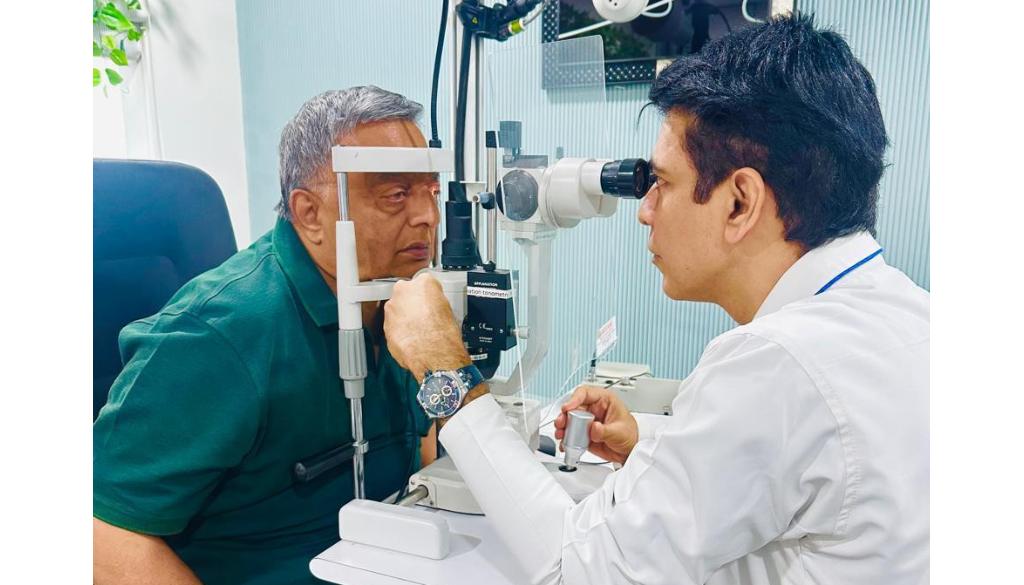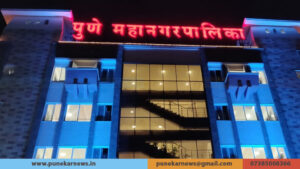Pune’s ophthalmologist successfully implanted an AI-driven intraocular lens with an advanced spiral design in Micro Incision Cataract Surgery

Pune, 3rd April 2025: Pune-based renowned ophthalmologist Dr. Vimal Parmar has successfully implanted an Artificial Intelligence (AI)- driven spiral-design intraocular lens (Rayner Rayone Galaxy Spiral IOL Toric). This microincision cataract surgery (MICS) was recently performed on Fatehchand Ranka, managing director of Ranka Jewellers. Dr. Parmar has become the second ophthalmologist in Asia and the first in Maharashtra to achieve this milestone.
Elaborating on the background, Dr. Vimal Parmar, Director, and Ophthalmologist at Mahaveer Super Specialty Eye Hospital, said, “There has been extensive research in cataract surgery and intraocular lenses over the past few decades. We have been successfully using mono-focal, bifocal, trifocal, and toric lenses for many years. In the recent past, Extended Depth of Focus (EDOF) and EDOF toric lenses have been used routinely.
He further added that these surgeries involve implanting lenses that enable patients to see objects at various distances, such as far, near, and intermediate distances, required for activities like reading, and using mobiles, and laptops. However, some patients with trifocal lenses have reported issues like glare from oncoming light, Halos, shadows, difficulty reading in low light, or blurred vision.
Dr. Parmar further explained, “These problems could affect the patient’s ‘Quality of Vision’ and ‘Quality of Life.’ To address this, research led to the development of Extended Depth of Focus (EDOF) lenses. The design of these lenses significantly reduced the ring-related glare experienced by patients with bifocal or trifocal lenses. However, a drawback was the need for glasses for near vision. Companies worldwide are working to improve this aspect for patient convenience.”
With this background, a British company focused on improving patients’ Quality of Vision and Quality of Life, recently introduced spiral-design lenses driven by Artificial Intelligence (AI) technology. According to their research and the experience of doctors in Britain and Australia, these lenses significantly reduce glare and halos, enabling patients to have a continuous range of vision without the need of glasses. By leveraging an AI-driven technology lens we can achieve greater precision, enhance customization, and improve patients’ satisfaction.
Dr. Parmar added that they have successfully performed surgery using these lenses in Pune recently. This lens allows maximum light to reach the retina, with minimal light loss, as observed by Dr. Parmar.
Some doctors in Britain and Australia have been using these lenses over the past few months, with optimum outcomes. In Asia, only one doctor in Bangalore has performed this surgery, making Dr. Parmar the second in Asia and the first in Maharashtra to achieve this milestone.
Dr. Parmar added, “The patient, Fatehchand Ranka, had a cylindrical number in his eyes, requiring the Rayner Rayone Galaxy Spiral IOL Toric Intraocular Lens with Spiral Design. This lens can be highly beneficial for patients with cataracts desiring spectacle independence and patients with cylindrical lenses, however, long-term studies will continue to assess patient-reported experiences, particularly in conditions like night driving and low-light environment.








